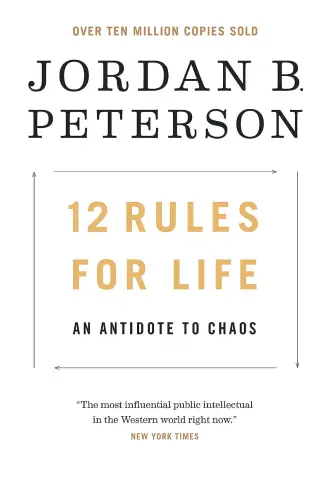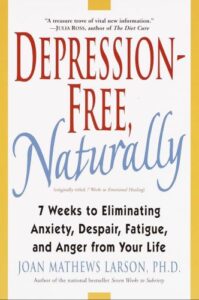12 Rules For Life
Book Author: Jordan Peterson
Summary reviewed by:
Terrence Timmons
Terrence Timmons
Analyst
Bachelor of Arts (BA), University Of California, Santa Barbara 2019
With over 4 years of experience as an analyst. Terrence Timmons is committed to analyzing summaries without compromising on quality.
12 Rules For Life: Summary
Dive into the deep end of life's existential pool with Jordan Peterson's 12 Rules for Life: An Antidote to Chaos, a revolutionary blueprint that challenges readers to embrace responsibility, find meaning, and overcome the chaos of daily life. Jordan Peterson, a seasoned clinical psychologist and professor with decades of experience navigating the human psyche, distills his practical wisdom and extensive knowledge of psychology, religion, and philosophy into a compelling narrative. This book stands not just as a collection of advice, but as a call to action for individual growth and understanding.
At the heart of Peterson's thesis is the assertion that life is fundamentally about balancing the chaos and order within us. Drawing from scientific theories, including evolutionary biology and neuroscience, Peterson crafts a framework that illustrates how understanding our brains and behaviors can lead to profound personal development. The credibility of his insights is bolstered by his own professional journey, marked by extensive research and clinical practice.
12 Rules for Life adopts a refreshingly realistic approach to self-improvement. Rejecting one-size-fits-all solutions, Peterson offers strategies that are both achievable and grounded in everyday reality. For instance, he advocates for starting with small, manageable tasks—like cleaning your room—as a stepping stone to larger life changes. This methodological approach ensures that personal growth is both sustainable and impactful.
The strategies Peterson outlines are diverse, ranging from the importance of standing up straight (to signal confidence and accept the burden of being) to the necessity of telling the truth (or, at least, not lying). Each rule is not just a directive but a pathway to deeper self-understanding and societal contribution. Practical steps and exercises are embedded throughout, encouraging readers to actively apply Peterson’s insights to their daily lives.
12 Rules for Life doesn't just advise; it equips. It provides readers with the tools to navigate complexity, embrace responsibility, and derive meaning from the pursuit of a well-ordered life. Through a blend of anecdotes, mythology, and clinical studies, Peterson crafts a narrative that is as intellectually stimulating as it is actionable, making the journey of personal transformation accessible to all.
12 Rules For Life: Genres
Self-help
Psychology
Personal development
Philosophy
Personal growth
12 Rules For Life: Themes
Order vs. Chaos: Peterson explores the dichotomy between order and chaos, illustrating how a balanced life requires navigating these two fundamental states. He suggests that too much chaos leads to uncertainty and suffering, while excessive order can result in tyranny.
Personal Responsibility: The theme of taking personal responsibility for one’s life and actions permeates the book. Peterson argues that individuals have the power to shape their destinies by assuming responsibility for their choices and behaviors.
The Search for Meaning: A central theme is the quest for meaning over the pursuit of happiness. Peterson posits that life’s fulfillment comes from finding and engaging in meaningful tasks, rather than in the transient pursuit of pleasure.
Truth and Honesty: Peterson champions the importance of speaking the truth and being honest with oneself and others. He suggests that truth is the foundation upon which healthy relationships and societies are built.
Self-Improvement through Small Actions: The book emphasizes the significance of small, personal actions in the broader context of life improvement. Peterson illustrates how seemingly insignificant tasks, like cleaning one’s room, can have profound psychological benefits and set the stage for greater achievements.
12 Rules For Life: What You Need to Know
(Contains Spoilers: Perfect for readers seeking a quick review.)
1: Stand up straight with your shoulders back - Emphasizes the importance of presenting oneself with confidence and accepting the burdens of life with willingness.
2: Treat yourself like someone you are responsible for helping - Highlights the importance of self-care and taking personal responsibility for one's own well-being.
3: Make friends with people who want the best for you - Stresses the significance of surrounding oneself with positive and supportive individuals.
4: Compare yourself to who you were yesterday, not to who someone else is today - Encourages personal growth through self-comparison over time rather than comparing oneself to others.
5: Do not let your children do anything that makes you dislike them - Advises on the importance of setting boundaries and teaching children behaviors that are socially acceptable.
6: Set your house in perfect order before you criticize the world - Suggests focusing on one's own life and responsibilities before critiquing the broader world.
7: Pursue what is meaningful (not what is expedient) - Advocates for the pursuit of long-term value and meaning over immediate gratification.
8: Tell the truth – or, at least, don't lie - Underlines the importance of honesty and integrity in building trust and understanding.
9: Assume that the person you are listening to might know something you don't - Encourages open-mindedness and the value of listening to others for learning and growth.
10: Be precise in your speech - Highlights the necessity of clear and precise communication to effectively convey thoughts and avoid misunderstandings.
11: Do not bother children when they are skateboarding - Represents the idea of allowing risk-taking and autonomy, particularly in the development of children.
12: Pet a cat when you encounter one on the street - Reflects on finding moments of happiness and comfort in the midst of life's suffering and chaos.
12 Rules For Life: Methodology
In our journey to encapsulate Jordan Peterson's 12 Rules for Life, we began with a focus on delivering content that resonates deeply with you, our esteemed reader, tapping into themes of personal responsibility and the search for meaning—elements we knew would not only intrigue but also enrich your understanding of life's complexities.
Our team, a blend of experts in literature and psychological analysis, dove into Peterson's work, teasing out the nuanced arguments and transformative insights nestled within. This process allowed us to distill Peterson's philosophical and psychological exploration into a digestible summary, highlighting its practical applications. Through this meticulous analysis, we ensured the integrity and quality of our summary, making it a reliable beacon for those seeking to navigate the chaos of existence with grace and purpose.


12 Rules For Life
Date Published: January 16, 2018
Disclaimer: As an Amazon Associate I earn from qualifying purchases.




